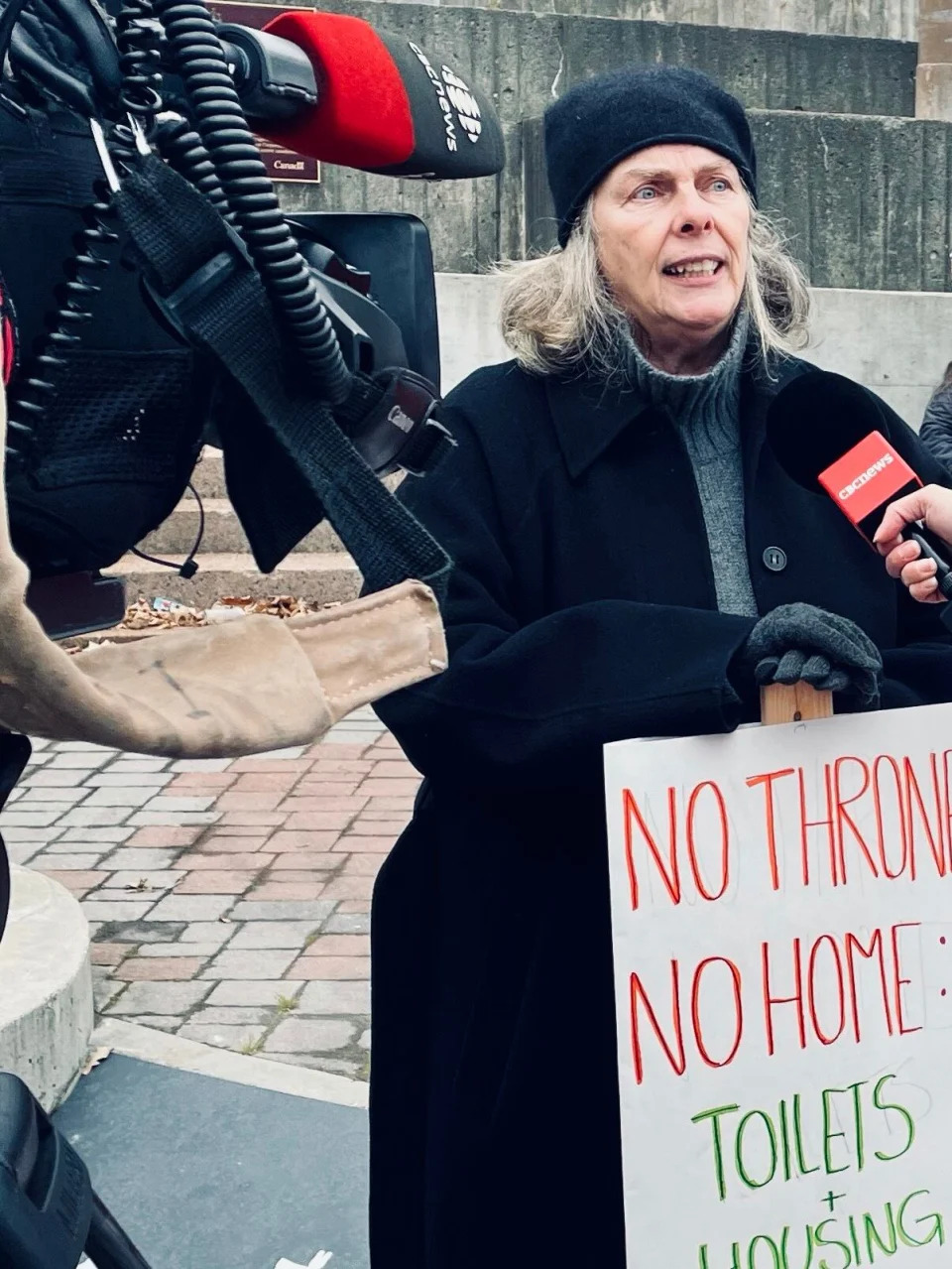New report on tent encampments adds nothing new to decades-long crisis, says advocate
CBC
Fri, February 16, 2024

People are living at a tent encampment in Bannerman Park in downtown St. John's. (CBC - image credit)
People are living at a tent encampment in Bannerman Park in downtown St. John's.
Housing advocate Julia Janes says there’s nothing new about the federal housing advocate's report on tent encampments. (CBC)
Federal Housing Advocate Marie-Josée Houle has released a new report on tent encampments, but longtime housing advocate Julia Janes says there's nothing novel about it.
"This is a crisis that's more than two decades in the making," said Janes, an assistant professor in Memorial University's social work department.
Houle's report, released Tuesday, calls on the federal government to establish a national encampments response plan by Aug. 31.
The report says all levels of government must work together to end forced evictions, ensure those living in encampments have access to basic necessities and address solutions to permanent housing issues.
Janes says there's nothing in the report that housing advocates haven't been asking for for decades. She says calling for a national encampment response plan by August was not the right move — change can't wait until summer, she says.
"Imagine what it means to hunker down on a snow day when you're living in a tent without heating and your basic needs being met," she said.
Worried for survival
People living in a tent encampment in Bannerman Park in downtown St. John's are still suffering, says Laurel Huget, an organizer with Tent City for Change, a group of volunteers supporting people at the encampment.

Laurel Huget volunteers with Tent City For Change in support of those living in the encampment outside of the Colonial Building in St. John's. After snowfall on Wednesday morning, she brought coffee and cigarettes. Laurel Huget is one of the organizers of Tent City for Change, a group of volunteers supporting people at the Bannerman Park tent encampment. (Danny Arsenault/CBC)
St. John's was battered this week with a two-day winter storm that saw high winds and heavy snow, and Huget says five people in the encampment stayed in their tents through the storm. Four residents were able to secure temporary accommodations at hotels, she said.
"We're worried about people surviving at night," she said, as many people at the encampment often don't have adequate food or heating.
Huget says people living in the encampment are losing faith in their elected representatives — if they had any faith to begin with — especially after what she called a "ridiculous debacle" when Transportation and Infrastructure Minister John Abbott said people living in the encampment will have a warm home by Christmastime.
"It seems like the only thing that will get movement from government is for community to come together and force their hand," she said.
Province left out
At the bottom of Houle's report is a "list of engagement partners," and not one organization on that list is based in or includes the voices of people living in Newfoundland and Labrador.

Long-time housing advocate Julia Janes says the tent encampments around the country are part of a crisis more than two decades in the making. Janes says tent encampments around the country are part of a crisis more than two decades in the making. (Submitted by Julia Janes )
"I almost fell off my chair when I read it, because guess who's not there?" she said.
"There is no representation from Newfoundland and Labrador. We are completely absent from that engagement."
Janes says the province needs to have a seat at the table. A top-down approach to addressing homelessness clearly isn't working, she added, as there are solutions to addressing tent encampments that are being ignored.
For one, says Janes, portable rent supplements, government-funded payments that allow people to move freely in the rental market, were not mentioned in the report.
"This is a very, very simple policy intervention that essentially is cutting a cheque to people who are currently houseless that they can then take and leverage in the market, the regular rental market," said Janes.
It's a low-cost solution, she says, that allows homeless people to decide where they live and under what circumstances.
Janes said there is a "bricks and mortar problem" — more homes need to be built — and an affordability crisis: there are available units, but they're too expensive.
"With the subsidy, we make them affordable," she said.
Huget says the people living at the tent encampment are calling for long-term, affordable and safe housing — a plea they've been making for months, and one that needs to be answered immediately.
"The situation is just so devastating," she said.
No comments:
Post a Comment